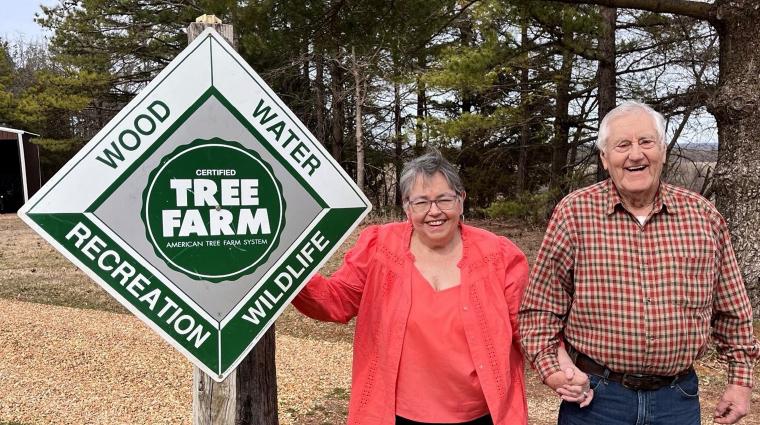Event is Oct. 3-4 in Mountain Grove.
MOUNTAIN GROVE, Mo. – University of Missouri Extension, in partnership with the Missouri Tree Farm Committee and the Forest and Woodlands Association of Missouri, invite the public to attend their annual Woodland Owners Conference, Oct. 3-4 in Mountain Grove.
MU Extension state forester Hank Stelzer says the conference offers an exciting lineup of tours and speakers that will help Missouri landowners improve their woodlands and highlight the important role of the state’s forest products industry.
Conference highlights
The conference kicks off Friday afternoon with optional tours to a black walnut plantation, hardwood flooring manufacturing facility or Missouri State University’s experiment station. Robbie Doerhoff, Missouri Department of Conservation’s forest health specialist, will be the featured speaker at the evening dinner.
Saturday activities begin 8:30 a.m. at the Schmollinger Tree Farm. Max and Lois Schmollinger will share their story of turning a neglected piece of Ozark ground into a productive and sustainable woodland. Presentations feature oak regeneration, crop tree release, pine plantation management, post oak decline and pollinators.
Register online to reserve your spot.
Tree Farm certification
The American Tree Farm System (ATFS), affectionately known simply as Tree Farm, is as relevant today as when it first began in 1941, says Stelzer.
Private landowners in Missouri hold 82% of the state’s 15.5 million acres of forestland. “Managing private forestland sustainably can enhance its ecological, economic and recreational value, but doing so requires knowledge, support and long-term planning,” says Stelzer.
ATFS, through its tree farm certification program, offers a wealth of resources and incentives to help landowners succeed. “Enrolling is not only a smart move for managing your woodland, it also contributes positively to your legacy, your community and the environment,” says Stelzer.
Support and recognition
One of the most compelling reasons to enroll in Tree Farm is the technical support it provides, he says. Certified Tree Farmers gain access to a network of forestry professionals, including foresters and conservation specialists, who can help develop and implement a forest management plan tailored to your goals. “Whether you aim to enhance wildlife habitat, harvest timber sustainably or improve recreational access, Tree Farm can connect you with expert guidance that ensures best practices are followed.”
Another key benefit is recognition, Stelzer says. The Tree Farm sign signals a landowner’s commitment to sustainable forestry. This recognition can foster a sense of pride and demonstrate to neighbors, local communities and future generations that your land is managed with care and stewardship. In some cases, certification may even increase the value of your property by showcasing its responsible management.
Tree Farm also opens the door to financial advantages. Many Certified Tree Farmers qualify for cost-sharing opportunities, tax incentives and grants to offset the expense of conservation work such as tree planting, invasive species removal or erosion control. Tree Farm certification also can give your timber a competitive edge in the market as more buyers seek wood products from sustainably managed forests.
Enrolling in Tree Farm helps protect and enhance ecosystem services, says Stelzer. Certified Tree Farms support biodiversity, improve air and water quality and contribute to carbon sequestration. By following a written management plan that balances conservation and production, landowners play a key role in sustaining healthy forests for the future.
Beyond the land itself, Tree Farm fosters a community of like-minded landowners, he says. Through workshops, field days, and regional meetings, tree farmers can share knowledge, exchange experiences and build lasting relationships. These connections offer ongoing learning and motivation, helping landowners stay engaged and inspired in their forestry journey.
Learn more about the American Tree Farm System.
Photo
Schmollingers
Lois and Max Schmollinger will share their story of turning a neglected piece of Ozark ground into a productive and sustainable woodland at the annual Woodland Owners Conference, Oct. 3-4, in Mountain Grove. The event is open to the public. Photo courtesy of Hank Stelzer.
